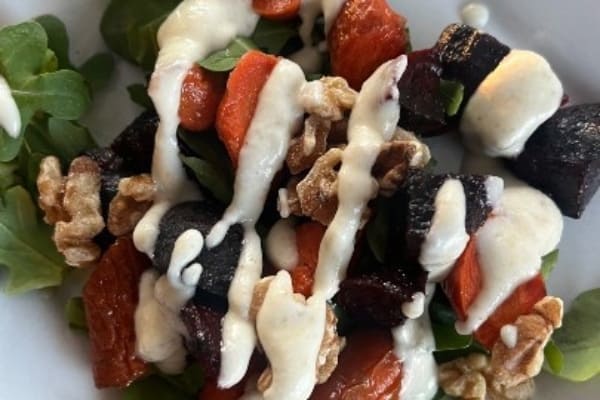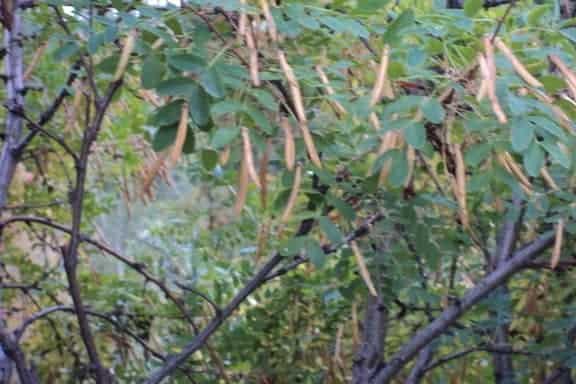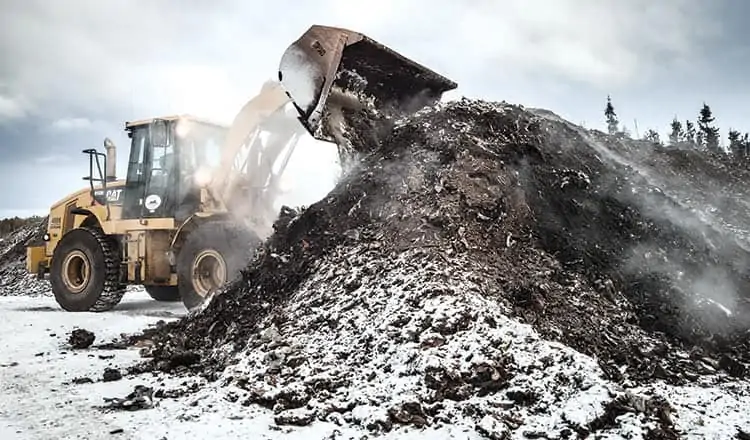Hi! This is your micro-herd talking.
You didn’t think you were keeping livestock, and we can understand that. We are really really small. But signs of our work are everywhere. We are the bacteria and fungi in your soil.
You know those plant roots that gradually disappear? That’s our handiwork, and we have news: your plants don’t eat much on their own.
If you think of your garden plants as babies, then we are the ones who chew their food for them. The more you feed us, the more of us there are to feed your plants. We may be small, but we are vital!
What happens when you put compost on your garden? Compost is chock-a-block with micro-herds. We get into the soil en masse and eat minerals of many sizes.
Some of us are even miners, producing acids that break down minerals. That’s how they become available for your plants.
Some folks don’t realize that we love to help out around the garden. The soil is our home, and we are born to pitch in. If we don’t, we start to die off. Let us explain.
When you pour soluble fertilizer into the soil, it’s like a person taking steroids. In a person, their system gets into a mode of production that is not generated by their body’s systems, and they exceed normal growth.
With plants, they start to grow bigger than they would if we were feeding them.
It doesn’t mean they are healthier. It doesn’t mean they are healthier for you. It means their cells are bigger because they are bloated.
If this goes on for years, we micro-herds lose diversity and your soil loses its dynamic ability to be a good home for us and for your plants.
What can you do to help us out? Give us shelter!
Bare soil is the sign of a tidy, well-kept garden, right? Leaves on the lawn or in the garden mean someone hasn’t had time to rake. Or worse, they don’t care what their lawn or garden looks like.
Well, we have news, and it’s great news: leaves are good for your garden and lawn!
That’s good news because it means less work for the gardener. It means less fossil fuel wasted on moving leaves from curbsides with big trucks. It means you take another step towards closing your own home food cycle.
All you have to do is start thinking of bare soil as needing a protective skin. Leaves (or any mulch) can be that skin!
Why leave the leaves?
1. Leaves protect us from the sun. Sunlight cooks us.
2. Rain washes bare soil away, especially on slopes.
3. Leaves slow evaporation—big time! Gardeners who try leaving their leaves find they need to water once a week instead of three times a week. If you have water delivery or if you haul water by hand for your garden, that is extra meaningful. Everyone benefits from less water use.
4. A sheltered soil contributes to global cooling. Think of this before you buy a bale of sphagnum peat moss: peat moss is stripped from vast areas, leaving bare soil that loses carbon into the atmosphere. Try the coconut fibre called coir (coy-yer) instead of moss peat.
5. Leaves are lunch! We’ll happily work alongside soil creatures such as insects, worms and springtails to decompose our roof of leaves and feed it to your plants.
Please… give us shelter. Don’t bare your soil!



